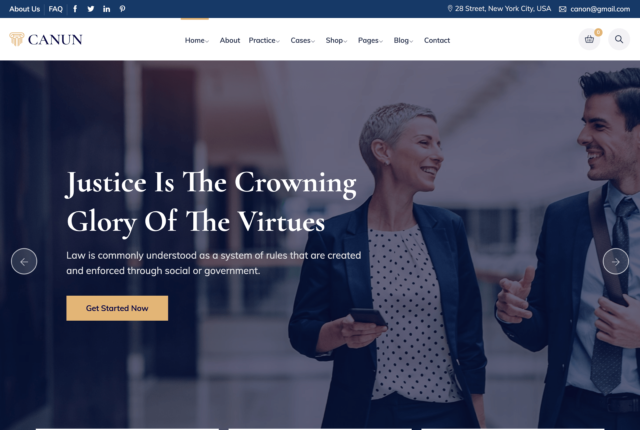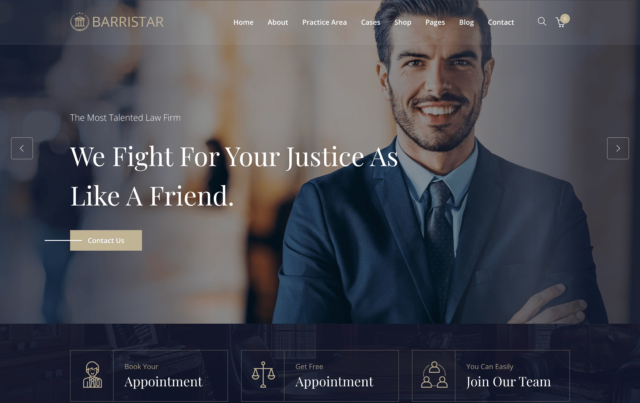In the legal industry, trust is everything. Clients want to work with attorneys who not only understand the law but can also provide insights and solutions to their legal issues. This is where thought leadership becomes a powerful marketing tool.
When attorneys establish themselves as thought leaders, they position their law firms as trusted authorities in their field. Thought leadership can be cultivated both online and in person, helping attorneys attract more clients, strengthen their reputation, and ultimately generate more leads.
This article explores the importance of thought leadership for law firms, how it helps build trust, and the steps attorneys can take to create a successful thought leadership strategy.
Why Thought Leadership Matters for Law Firms
Thought leadership is about demonstrating expertise, credibility, and trustworthiness in a way that resonates with potential clients and industry peers. A strong thought leadership strategy benefits law firms in several ways:
1. Builds Trust and Credibility
People are more likely to hire an attorney they perceive as an expert. By consistently sharing valuable insights, attorneys educate their audience, making potential clients feel confident in their legal knowledge.
Example: A personal injury lawyer who publishes in-depth articles about insurance negotiations establishes themselves as a trusted advocate for accident victims.
2. Helps Generate More Leads
Clients often search for legal advice before hiring an attorney. If a law firm’s blog, webinar, or video answers their questions, they are more likely to reach out for a consultation.
Example: A family law attorney who writes a guide on navigating child custody disputes will attract potential clients searching for legal help in that area.
3. Differentiates a Law Firm from Competitors
Many law firms offer similar legal services, but not all of them position themselves as authorities. A strong thought leadership strategy sets a firm apart and makes them the obvious choice for potential clients.
4. Enhances Networking and Referral Opportunities
Attorneys known for their insights and expertise are more likely to receive referrals from other professionals, including other attorneys, journalists, and business leaders.
Example: A corporate attorney who regularly speaks at business conferences may receive referrals from executives needing legal counsel.
How to Develop a Thought Leadership Strategy
1. Create High-Quality Content That Educates and Engages
Content marketing is one of the most effective ways for attorneys to establish themselves as thought leaders. The key is to create educational, insightful, and relevant content that resonates with potential clients.
Best Content Types for Thought Leadership:
- Blog Posts & Articles – Provide legal insights and practical advice.
- Whitepapers & Guides – Offer in-depth resources on complex legal issues.
- Webinars & Live Q&A Sessions – Engage directly with potential clients and answer their questions in real time.
- Legal News Commentary – Provide expert opinions on new laws and legal trends.
Example: A criminal defense lawyer writes an article on how new DUI laws will impact drivers in 2025, positioning themselves as an authority on the topic.
2. Leverage Social Media to Share Expertise
Social media is a powerful platform for attorneys to amplify their thought leadership efforts. LinkedIn, in particular, is ideal for sharing insights, engaging with legal professionals, and building an audience.
Strategies for Social Media Thought Leadership:
- Share case studies and legal insights that help potential clients.
- Engage in discussions on legal trends and industry news.
- Publish LinkedIn articles showcasing expertise in a specific area of law.
Example: An immigration attorney posts weekly LinkedIn updates on policy changes affecting visa applicants, attracting engagement from businesses and individuals needing immigration assistance.
3. Speak at Legal and Industry Events
Public speaking is an excellent way for attorneys to showcase their expertise and connect with potential clients in person. Speaking engagements at conferences, legal panels, and business networking events enhance credibility and visibility.
Ways to Get Speaking Opportunities:
- Apply to legal conferences and bar association events.
- Offer to present webinars for business groups or community organizations.
- Participate in media interviews or legal podcasts.
Example: A cybersecurity attorney speaks at a tech industry conference on data privacy laws, positioning themselves as the go-to expert for businesses needing compliance guidance.
4. Get Featured in News and Legal Publications
Media exposure builds credibility and expands reach beyond a law firm’s immediate network. Attorneys should actively seek opportunities to contribute legal insights to journalists, bloggers, and online publications.
How to Get Featured:
- Use HARO (Help a Reporter Out) to respond to journalist inquiries.
- Pitch guest articles to legal publications like Law.com or Above the Law.
- Offer expert commentary on legal issues to news outlets.
Example: A real estate attorney is quoted in The Wall Street Journal about new housing regulations, increasing their credibility and brand exposure.
5. Build Relationships Through Networking
Thought leadership is not just about publishing content—it is also about building meaningful connections with industry professionals and potential clients.
Networking Strategies for Thought Leaders:
- Join bar associations and legal industry groups.
- Connect with journalists, business leaders, and fellow attorneys.
- Attend networking events and community forums to meet potential clients.
Example: A labor law attorney develops strong relationships with HR professionals, leading to regular referrals for workplace discrimination cases.
6. Host Educational Webinars and Podcasts
Hosting a webinar or podcast allows attorneys to discuss legal issues in an engaging, conversational format while directly interacting with their audience.
Successful Thought Leadership Webinar Topics:
- “Estate Planning Mistakes to Avoid” – Hosted by an estate planning attorney.
- “How to Protect Your Business from Employment Lawsuits” – Led by a business lawyer.
- “DUI Defense Strategies: What You Need to Know” – Presented by a criminal defense attorney.
Example: A personal injury lawyer starts a monthly YouTube live Q&A on accident claims, building a loyal audience and increasing consultation requests.
Measuring the Success of a Thought Leadership Strategy
To ensure thought leadership efforts are effective, law firms should track:
- Website Traffic Growth – Are more people visiting the firm’s website after reading blogs or watching webinars?
- Engagement Metrics – Are social media posts, articles, and webinars generating comments, shares, and discussions?
- Lead Generation – Are potential clients mentioning content, articles, or speaking engagements when reaching out?
Why Work with a Marketing Agency to Build Thought Leadership?
Developing a thought leadership strategy takes time and expertise. Working with a legal marketing agency like Potenture Media Group ensures that law firms:
- Publish high-quality, optimized content that ranks in search engines.
- Secure media placements and speaking opportunities.
- Develop social media and content marketing strategies that attract potential clients.
A marketing agency streamlines the process, allowing attorneys to focus on practicing law while building their reputation as industry leaders.
Final Thoughts
Thought leadership is one of the most effective ways for attorneys to build trust, differentiate themselves from competitors, and generate high-quality leads. Whether through blogging, public speaking, social media, or media features, attorneys who position themselves as authorities in their field gain more visibility and credibility.
Law firms that invest in thought leadership will not only attract more clients but also build long-term brand equity. A well-planned strategy, supported by strong content marketing and PR efforts, ensures that an attorney’s name becomes synonymous with legal expertise.








